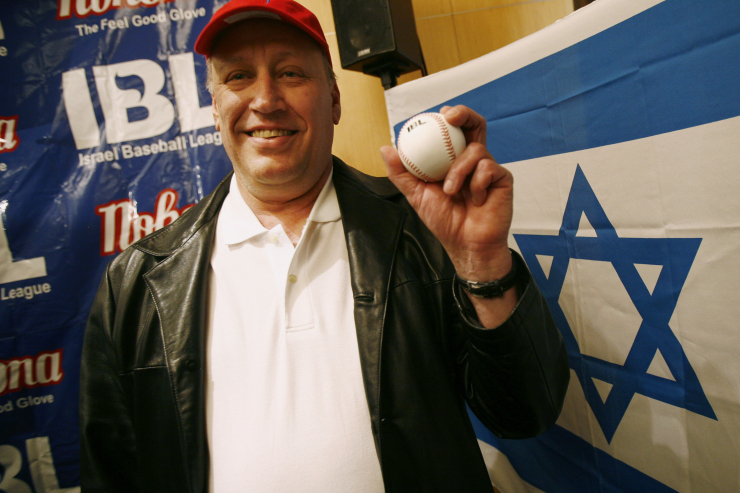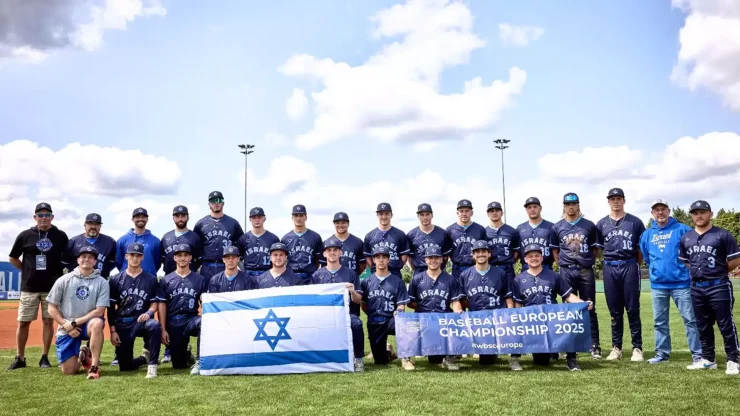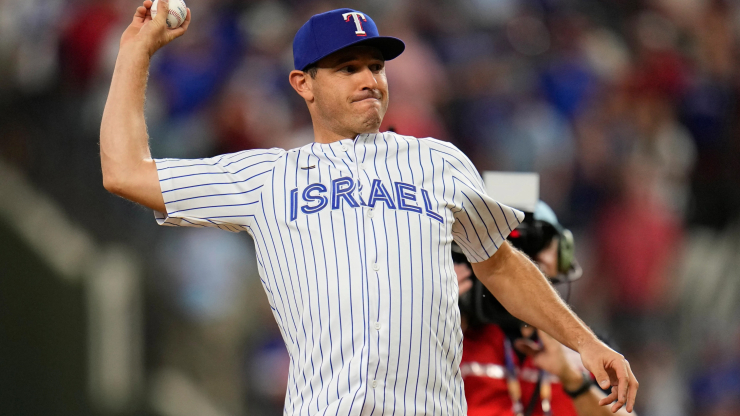
Ken Holtzman, First Yahrzeit: From MLB to IBL
By Bill Simons, Co-director, The Cooperstown Symposium on Baseball and American Culture
Ken Holtzman died on April 15, 2024, 7 Nisan 5784. This is his first yahrzeit, time to remember this good man, outstanding pitcher, and observant Jew. From the ballparks of Major League Baseball to those of the Israel Baseball League, he left a significant legacy.
Do you want a trivia question that will stump all but the most erudite baseball scholars?
Ask who is the winningest Jewish pitcher of all-time. It is Sandy Koufax, of course. Except it isn’t. Koufax is the GOAT obviously, but Ken Holtzman is the winningest Jewish pitcher. Holtzman had 174 career wins against Koufax’ 165.
At the 5-season peak (1962-1966) of Koufax’ injury-abbreviated career, he might have been the game’s preeminent pitcher, Jewish or Gentile. With a longer career, however, Holtzman won more games. Moreover, although Max Fried and Dean Kremer are still works in progress, Holtzman clearly ranks as the best Jewish pitcher whose name isn’t Koufax.
Against 174 victories, Holtzman lost 150 games for a .537 winning percentage over 15 seasons and 2867 innings pitched. Playing for 4 teams — the Chicago Cubs (1965-1971, 1978-1979), Oakland Athletics (1972-1975), Baltimore Orioles (1976), and New York Yankees (1976-1978) — he won 17 or more games 6 times, peaking with 21 in 1973. Tall and lanky, the 6’2” lefty weighed only 175 pounds during his playing days. A hummer fastball, a big roundhouse curve, good control and placement, and meticulous preparation enabled Holtzman to register 31 shutouts, 2 no hitters, 127 complete games, and a 3.49 career earned run average during the regular season.
A money pitcher, Holtzman excelled in the postseason. With 4 wins against only 1 loss, he had an .800 winning percentage in World Series completion. And Holtzman had a notable 2.55 World Series earned run average. With the A’s winning 3 consecutive World Series titles (1972-1974), the Oakland years were the highlight of Holtzman major league career and sartorial style. Attired in the A’s snazzy, 2-toned, green and yellow uniform, Holtzman, like most of his Oakland teammates, grew a raffish mustache.
For a pitcher, Holtzman was a good hitter. I had the privilege of chatting with Ed Mickelson, now 98, who holds the distinction of knocking in the last run in St. Louis Browns history and coaching Holtzman at University City High School in suburban St, Louis. I complimented Coach Mickelson for making Kenny a good pitcher. The venerable baseball coach retorted, “I didn’t make him a pitcher. His father Henry did that. But I made Kenny a hitter.” Holtzman had a .333 World Series batting average. His 1974 home run in Game 4 was the last World Series round tripper by a pitcher for the next 34 years.
Holtzman was successful in both leagues. His play for Chicago of the National League earned him election to the Cubs Hall of Fame. As part of the stellar Oakland pitching rotation, he was integral to the Athletics’ American League dominance during the early 1970s. Holtzman was selected for the 1972 and 1973 All-Star game.
Holtzman accomplishments transcended the game. As the Cubs’ player rep, he was an early activist in the Major League Baseball Players Association and contributed to Marvin Miller’s successful campaign to obtain better terms and conditions for players. Even though it meant limiting pitching to weekends and home games, Holtzman earned a BA in business administration and French from the University of Illinois; The Sporting News carried a photo of Holtzman, looking very collegiate in pullover sweater, autographing the notebook of a fellow student. Enlisting in the armed forces, National Guard service limited him to 12 starts, sometimes on weekend passes, in 1967; still he won 9 games without a defeat. Possessed of an active intellect, he read serious literature and enjoyed challenging crossword puzzles. Most important, Holtzman was the proud father of 3 daughters and 4 grandchildren. His eldest daughter Robyn remembers him warmly, “He always looked for ways that he could help people.”
From bris to burial, Kenny ranks high amongst ballplayers in Jewish observance and affirmation. Still waiting for his growth spurt, Kenny stood on a stool at his bar mitzvah to do his reading. Marrying within the Jewish faith, Holtzman walked down the aisle with Michelle Collons, a clinical psychologist, on February 7, 1971, at Temple Ezras Israel in Chicago. The family kept kosher at home, and he did his best to do so on the road. After the murder of Israeli athletes at the 1972 Munich Olympics, Holtzman donned a black armband over his uniform sleeve to honor their memory. Given the length of his career and commitment to observance, Holtzman may hold the record for MLB games missed in order to attend High Holiday services. According to reporter Nate Bloom, in 1973 Holtzman was “surprised when a limousine appeared in front of his Baltimore hotel on Yom Kippur morning. The driver told Holtzman that he was to take the pitcher to the synagogue.” The limo was courtesy of Jerry Hoffberger, then owner of the rival Baltimore Orioles, who sat with Holtzman during the service. Holtzman was a strong supporter of the Jewish War Veterans of America. An exemplar of muscular Judaism, he served as physical education director at the St. Louis Jewish Community Center and coached teams representing the JCC in the Maccabi games. In 2007, he joined the on-site effort to expand Israeli participation in baseball. After a graveside service, Ken Holtzman was buried at Chesed Shel Emeth Cemetery in metropolitan St. Louis.
Holtzman recounted, “I encountered my share of antisemitic insults during my career from fans, players and other persons associated with the game.” Iconically, the worst of it came from two of his managers, the Cubs “Leo the Lip” Durocher and New York Yankees skipper Billy Martin. During a game, Durocher loudly fired a series of anti-Jewish epithets at Holtzman, espousing the twisted belief that the tactic would anger and thus motivate the pitcher. The volatile and combative Martin harbored an irrational dislike of Holtzman, limiting his time on the mound, thus undermining Holtzman’s confidence and performance. This led sportswriter Jim Murray to headline a column with “Who killed Kenny?” Martin’s abuse contributed to Holtzman’s precipitous decline by age 31 and exit from the game at 33, possibly costing the pitcher up to 75 career victories.
I met Ken Holtzman twice, at a Cooperstown Hall of Fame conference on Jews in baseball in 2004, where we were both presenters, and then 3 years later in Israel. He was upbeat at the Cooperstown conference, not so in Israel. By that time, Holtzman’s marriage and association with the St. Louis “J” had ended, and he was doing some substitute math teaching.
Ken welcomed the opportunity to help baseball establish foundations in Israel as manager of the Petach Tikva Pioneers in the new and short-lived Israel Baseball League. “My mother’s proudest moment for the past 41 years has been the day in 1966 when I pitched against Sandy Koufax,” he confided. “Now that I have the chance to manage in Israel, she’s also very, very proud.” An adventure awaited, and Holtzman was happy, excited, and anxious.
In an attempt to legitimize the new enterprise, three former Jewish major leaguers — Holtzman, Ron Blomberg, and Art Shamsky — with baseball name recognition were recruited to manage in the new league. Holtzman, Blomberg, and Shamsky all lacked prior managerial experience, and none of the trio had ever been to Israel before. Friends for decades, Shamsky and Holtzman, a few years his junior, both graduated from University City Senior High although not in the same class and were later Oakland A’s teammates.
Armed with media credentials from IBL PR director Marty Appel, I attended a number of games, conducted interviews, and wrote about the new league. I found Holtzman gracious, considerate, intelligent, candid, and committed to Israel and Judaism. Realizing that I didn’t have a car in Tel Aviv, he even offered me a ride. When I told Holtzman about the exhibit honoring him at the International Jewish Sports Hall of Fame at the Wingate Institute for Physical Education and Sport in Netanya, he showed interest and resolved to visit it. He sounded more like a fan than a former All-Star when he expressed pride in having Sandy Koufax’ private email address and a baseball autographed by the great Dodger lefty.
Holtzman’s IBL involvement turned out very differently than he had anticipated. Due to a poorly designed player draft, the league was lopsided, and Petach Tikva languished in last place, frustrating Holtzman. The Pioneers were simply not competitive. Petach Tikva’s team batting average was anemic .234 (the other 5 clubs had team batting averages of .294, .280, .278, .272, and .262). Petach Tikva’s pitching was even more problematic. The cumulative ERA for the Pioneers’ pitching staff was an astronomical 7.17 (compared to 3.65, 5.33, 5.47, 5.58, and 6.59 for other teams). For Holtzman, a proud competitor, Petach Tikva’s performance was a bitter pill, but his disillusionment went beyond the travail of his own team.
Holtzman was outraged when unsafe caging allowed a practice line drive to hit one of his players on the side of the head, causing serious injury. In an interview with Walla, an online Israeli news site, he was highly critical of the IBL. Holtzman related that he arrived with optimism, hoping that baseball might gain a following in Israel as basketball had done previously, abetted by the contributions of his former college classmate Tal Brody.
The IBL’s opening day, buttressed by American atmospherics, had given Holtzman a sense that something significant was about to happen. According to Walla, Holtzman’s faith in the IBL dissipated as attendance plummeted. He criticized the organizers of the IBL for poor leadership, absenteeism of several officials who returned to the US, deceptive statements, acting in haste, unbalanced rosters, and unsafe field conditions. Nonetheless, in the Walla interview, terming himself a Zionist, Holtzman stressed his love for Israel, noting that he had visited Jerusalem and prayed at the Wall. Within 2 weeks of the Walla interview, which elicited a strong backlash, Holtzman departed Israel prior to the end of the IBL season. In response to questions about his exit, he stated, “I will no longer comment on this league.”
Heart and respiratory conditions led to hospitalization during the last 3 weeks of Holtzman’s life. Kenneth Dale Holtzman, age 78, died on April 15, 2024. Hopefully, before Holtzman recited his final Shema, he recalled the pride he brought to fellow Jews in September 1966.
The first and greatest matchup of Jewish pitchers took place on Sunday, September 25, 1966, the day after Yom Kippur, at Chicago’s Wrigley Field. Holtzman, then 20 and in his second season with the Chicago Cubs, faced off against his hero, the legendary Sandy Koufax, at 30 a decade older than Holtzman and in his final season with the Los Angeles Dodgers. Although only a paltry 530 Cubbies had turned out for Holtzman’s previous home start, 21,659 fans came to watch him duel the great Koufax. Holtzman’s parents and siblings drove through the night for the game, even bringing his 7-year-old sister Janice. As expected, Koufax was Koufax — intimidating fastball, “twelve-to-six” curveball, pinpoint control. Sandy allowed only 4 hits and 1 earned run (another run, unearned, came as the result of an error). But Kenny, fresh off a Yom Kippur fast, was better, yielding only 2 hits and 1 run while striking out 8. Prior to a couple of 9th inning singles, he had a no-hitter going. Holtzman led the hapless Cubs, destined for the NL basement, to a 2-1 victory over Koufax’ pennant-bound Dodgers. Directing a kudo to his young landsman, Koufax said, “I was satisfied with my performance, but Ken was too good for us today.” It appeared that the torch had been passed. Fans and media hailed Holtzman as “the next Sandy Koufax.”
Holtzman was not the new Koufax, but he left a notable legacy.
Ken Holtzman is the winningest Jewish pitcher of all-time.
Related News & Updates
View All
“That the children playing today in Ra’anana will represent Israel in Los Angeles 2028”
Chairman of the Israel Association of Baseball, Ari Varon, believes in the future of the sport, “that…

BASEBALLIYAH: CLASS OF ’25
By Becca Weinberg There was a noticeable shift in the dusty grass lining Israel’s first baseball…

Kinsler Back to Manage Team Israel at the 2026 WBC
Four-time all-star and World Series Champion, Ian Kinsler, Will Lead Team Israel Again, the Team has…